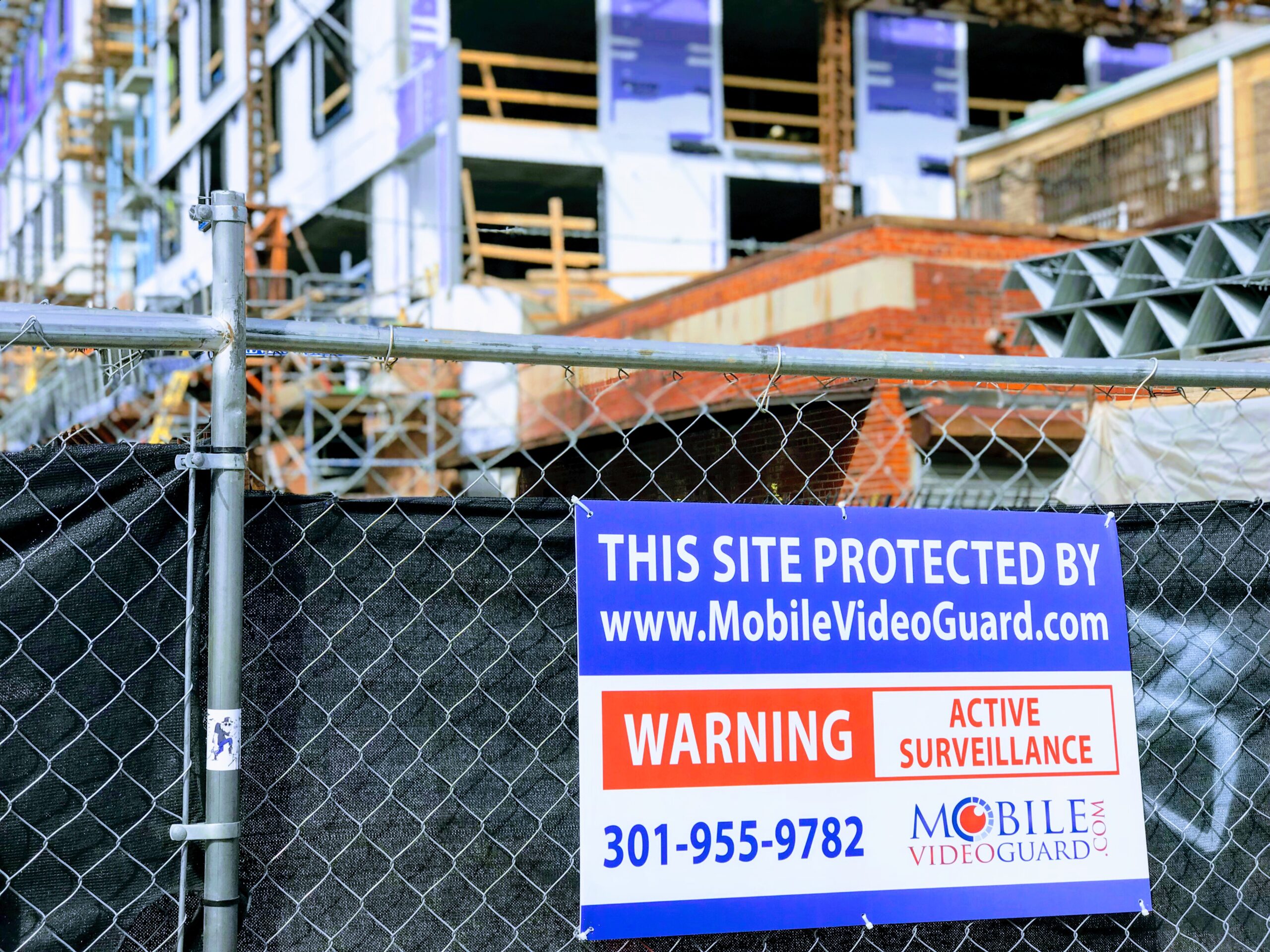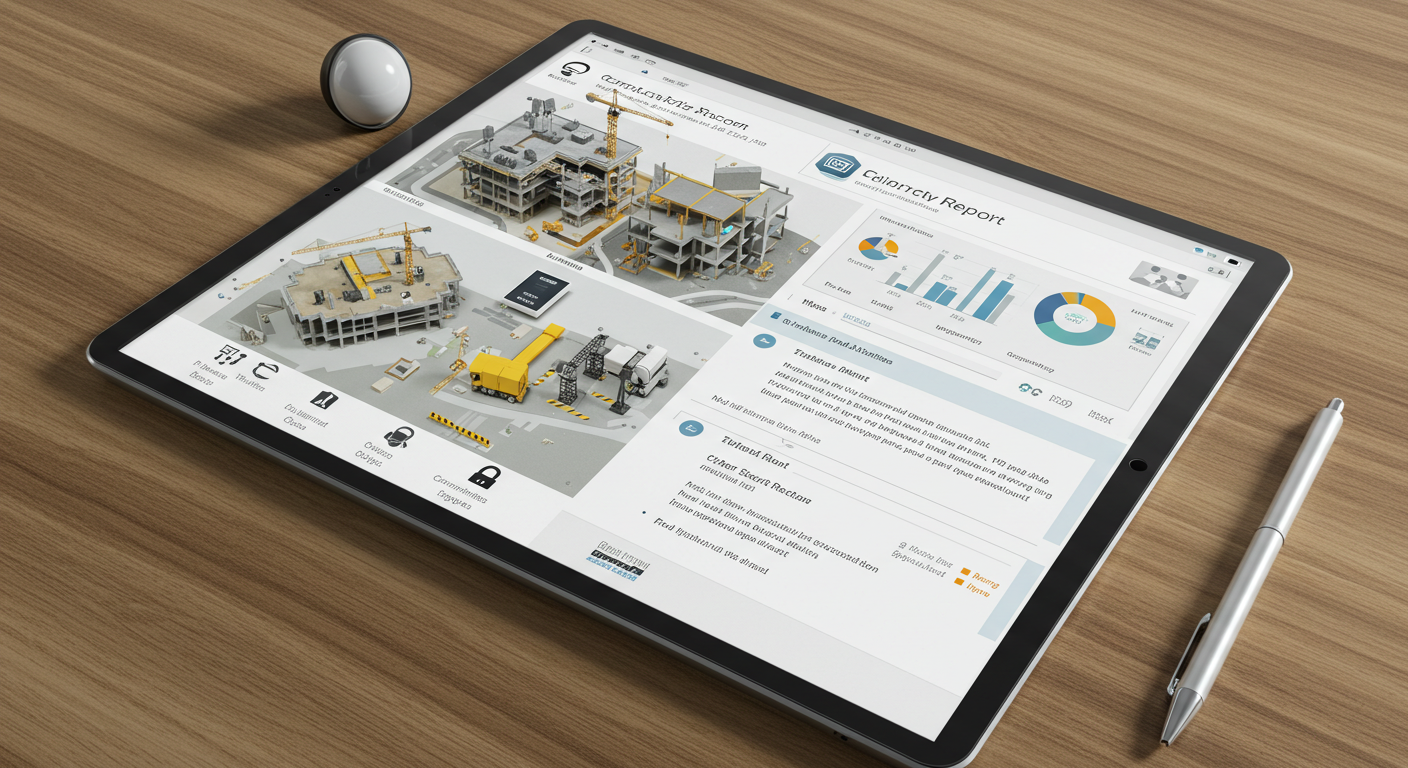Security camera systems are a vital component in protecting your local business. With the rise in crime rates and security threats, it is essential to invest in a reliable and effective security camera system. But with the plethora of options available, how do you choose the right one for your business? This article will guide you through the process, providing you with key considerations and features to look for in security cameras, the importance of cloud storage, and the benefits of security camera systems for local businesses.
Key Takeaways
- Choosing the right security camera system is crucial for the safety and security of your local business
- Consider the types of security cameras available, their key features, and their integration into your business operations
- Cloud storage offers numerous benefits for security camera systems, including convenience, accessibility, and increased storage capacity
- Select the right storage option for your security camera system, whether it be local storage, SD card, or hybrid solutions
- Security camera systems provide enhanced security and safety, deter criminal activity, and enable the monitoring of employee performance and customer behavior
What to Consider When Choosing Security Cameras
When selecting security cameras for your local business, there are several factors to consider. Understanding the available types of security cameras and their key features can help you make an informed decision.
Types of Security Cameras Available
When selecting a security camera system for your local business, it is essential to understand the different types of cameras available and their respective features.
Analog Cameras
Analog cameras are the traditional surveillance cameras that have been widely used for decades. These cameras capture video in a continuous analog signal, which is then converted to digital format for storage and viewing.
Analog cameras often operate on a 2.4GHz frequency and offer features such as auto-motion detection and low-light performance. They are relatively affordable and compatible with various recording devices and storage systems.
However, analog cameras have limitations in terms of resolution and image quality compared to their digital counterparts. They may not provide the same level of detail and clarity as IP cameras, which can be a crucial factor in identifying individuals or objects in the footage.
IP Cameras
IP cameras, or Internet Protocol cameras, are digital cameras that use the internet to transmit data. Unlike analog cameras, IP cameras capture video in a digital format, which can be directly stored and viewed in digital form.
IP cameras offer superior image quality and resolution compared to analog cameras, with options such as WiFi smart cloud cameras. These cameras can connect to a wireless network, making installation and setup easier than traditional wired cameras.
Additionally, IP cameras provide advanced features, such as remote viewing, advanced video analytics, and integrations with other smart systems. These capabilities enhance the effectiveness and functionality of the security camera system.
Keep in mind that IP cameras may require a network video recorder (NVR) or a video management system (VMS) for recording and managing the footage. These additional components add to the overall cost and complexity of the system.
Wireless Cameras
Wireless cameras offer the convenience of easy installation and flexibility in placement. These cameras use wireless technology, such as WiFi or Bluetooth, to transmit video signals to a central recording device or cloud storage.
Solar panel-powered wireless cameras are particularly useful for outdoor surveillance in areas where power sources are limited. They harness solar energy to power the cameras, eliminating the need for electrical wiring or batteries.
Wireless cameras are ideal for businesses that require flexibility in camera placement or do not want to deal with the hassle of running cables. However, they may be susceptible to interference from other wireless devices or signal disruptions, so proper positioning and signal strength are crucial for optimal performance.
Consider the specific requirements of your local business when choosing between analog, IP, or wireless cameras, ensuring that the selected type meets your surveillance needs effectively.
Key Features to Look for in Security Camera Systems
When selecting a security camera system for your local business, consider the key features that will enhance its effectiveness.
High Resolution
High resolution is an essential feature to ensure clear and detailed video footage. Look for cameras with high-resolution capabilities, such as WiFi smart cloud cameras or IP cameras with 4K Ultra HD resolution. These cameras can capture sharp and precise images, allowing for better identification of individuals or objects in the footage.
Night Vision Capabilities
Night vision capabilities are vital for businesses that operate during nighttime or low-light conditions. Ensure that the cameras you choose have infrared LED lights or other night vision technologies to capture clear footage in the dark. Look for cameras with adjustable sensitivity settings to optimize their performance in varying lighting conditions.
Motion Detection
Motion detection is an important feature that can minimize false alarms and focus on capturing relevant events. Cameras with motion detection sensors can trigger recording or send alerts when movement is detected, ensuring that you capture critical footage. Look for cameras with adjustable motion detection settings to customize the sensitivity and detection areas according to your specific surveillance needs.
Remote Viewing Options
Remote viewing options allow you to access live feeds and recorded footage remotely. This feature provides convenience and peace of mind, enabling you to monitor the security of your local business from anywhere at any time. Look for cameras that offer remote viewing capabilities through mobile apps or web interfaces, ensuring compatibility with your preferred devices.
By considering these key features when choosing a security camera system, you can ensure that you select a solution that meets your business’s specific surveillance requirements and provides optimal performance.
Integrating Security Camera Systems into Your Business Operations
Integrating security camera systems into your business operations involves more than just installation. It entails connecting the cameras to a centralized monitoring system, utilizing video analytics for enhanced security, and training employees on camera usage.
Connecting Security Cameras to a Centralized Monitoring System
To effectively monitor and manage your security camera system, it is beneficial to connect the cameras to a centralized monitoring system. This enables you to view and control multiple cameras from a single interface, streamlining your surveillance process.
Wireless security camera systems offer flexibility in connecting cameras to a centralized monitoring system. These systems can transmit video signals wirelessly to a central recording device or cloud storage, eliminating the need for complex wiring setups.
By connecting your security cameras to a centralized monitoring system, you can easily access and manage the footage, ensuring comprehensive coverage of your local business.
Utilizing Video Analytics for Enhanced Security
Video analytics is a powerful tool that can enhance the security capabilities of your surveillance system. It involves using advanced algorithms and artificial intelligence to analyze live or recorded video footage, automatically detecting and alerting on specific events or behaviors. Learn more about video analytics.
IP security cameras often come with built-in video analytics capabilities, enabling intelligent video motion detection, people counting, object tracking, and facial recognition. These features enhance situational awareness and reduce the time and effort required for manual monitoring.
By leveraging video analytics, you can identify potential threats in real-time, receive instant alerts for suspicious activities, and proactively respond to security incidents. This not only enhances the overall security of your local business but also improves operational efficiency by automating surveillance processes.
Training Employees on Security Camera Usage
Training your employees on security camera usage is crucial to maximize the effectiveness of your security camera system. Ensure that your staff understands how to operate the cameras, access the footage, and report any suspicious activities.
Host training sessions or provide training materials that cover the basics of security camera operation, such as navigating the user interface, reviewing footage, and retrieving archived recordings. Emphasize the importance of privacy and data protection, emphasizing the need to securely manage and store video footage.
Additionally, educate your employees on the role of security cameras in maintaining a safe and secure work environment. Foster a culture of vigilance and encourage staff to report any potential security concerns they observe through the camera feeds.
By training your employees on security camera usage, you empower them to actively contribute to the security and safety of your local business.
Importance of Cloud Storage for Security Camera Systems
Cloud storage has revolutionized the way security camera systems store and manage footage. It offers numerous benefits compared to traditional on-premise storage.
Cloud Storage for Security Camera Systems
One of the primary benefits of cloud storage for security camera systems is the increased storage capacity it provides. Unlike on-premise storage, which may have limitations on storage space, cloud storage offers virtually unlimited capacity, allowing you to store and access a vast amount of video footage.
Additionally, cloud storage eliminates the risk of physical damage or theft of storage devices. With on-premise storage, there is always a possibility of the storage device getting damaged or stolen, resulting in the loss of crucial footage. Cloud storage mitigates this risk by securely storing the footage off-site.
Cloud storage also offers convenience and accessibility. By uploading the footage to the cloud, you can access it from anywhere at any time using a computer, smartphone, or tablet. This flexibility ensures that you can monitor your business’s security even when you are not physically present on-site.
Furthermore, cloud storage provides redundancy and backup capabilities. In the event of a hardware failure or system malfunction, your footage is safely stored in multiple locations, preventing data loss.
Choosing the Right Storage for Your Security Camera System
Selecting the right storage option for your security camera system is essential for effectively managing and accessing your footage.
Considerations for On-Premise Storage
On-premise storage refers to storing the video footage locally within your business premises, typically using devices such as DVRs (digital video recorders) or NVRs (network video recorders).
When considering on-premise storage, assess the storage capacity requirements based on the number of cameras and the desired retention period. Ensure that the chosen storage device can handle the amount of footage generated by your security camera system.
Additionally, take into account the limitations of physical storage devices. Hard drives and other storage media have finite lifespans and are susceptible to failures. Regularly back up the footage to another storage device or consider redundant storage solutions to minimize the risk of data loss.
Cloud Storage
Cloud storage offers numerous advantages for security camera systems. It eliminates the need for physical storage devices and provides virtually unlimited storage capacity for your video footage.
One of the key benefits of cloud storage is the convenience and accessibility it offers. By uploading your footage to the cloud, you can access it from anywhere at any time through a secure web interface or mobile app. This flexibility ensures that you can monitor your business’s security even when you are not physically present on-site.
Furthermore, cloud storage provides redundancy and backup capabilities. Your footage is securely stored in multiple locations, reducing the risk of data loss in the event of hardware failures or system malfunctions.
Another advantage of cloud storage is scalability. As your business expands or your surveillance needs increase, you can easily scale up your storage capacity without the need to invest in additional physical storage devices.
However, it’s important to consider the potential challenges of cloud storage, such as monthly subscription fees and the speed of uploading and retrieving footage, which can be dependent on your internet connection.
Hybrid Storage Solutions
Hybrid storage solutions combine the benefits of local and cloud storage, offering a balance between cost-effectiveness and scalability.
With hybrid solutions, a certain amount of footage is stored locally on devices within your business premises, while the rest is automatically backed up to the cloud. This approach allows for quick access to recent footage and provides the convenience of remote access and increased storage capacity through the cloud.
Hybrid storage solutions provide flexibility and can be tailored to suit your specific storage needs and budget. Consider your business requirements, data retention policies, and desired level of redundancy when deciding on a hybrid storage strategy.
Choose the storage option that best aligns with your business needs, considering factors such as storage capacity, accessibility, scalability, and cost.
Tips for Maintaining and Securing Your Security Camera System
To maintain the effectiveness and security of your security camera system, follow these tips:
Regular Maintenance Checks
Schedule regular maintenance checks for your security camera system to identify any hardware or software issues. Inspect the cameras, cables, and other components for signs of damage or malfunction. Clean the lenses and ensure that the camera angles are adjusted correctly.
Perform regular firmware and software updates recommended by the camera manufacturer. These updates often include bug fixes, security patches, and performance improvements, ensuring that your system remains up to date and secure.
Updating Firmware and Software
Regularly update the firmware and software of your security camera system to keep it secure and optimized. Outdated versions may have vulnerabilities that can be exploited by hackers, compromising the integrity of your system and footage. Check for updates from the camera manufacturer and install them promptly.
Securing Access to Camera Feeds and Storage Backups
Security should be a top priority when it comes to your security camera system. Use strong, unique passwords for all user accounts and enable two-factor authentication whenever possible. Restrict access to camera feeds and storage backups to authorized personnel only.
Regularly review and audit user access permissions to ensure that only authorized individuals have access to the system. Implement policies and procedures for managing access credentials and ensure that employees are aware of the importance of maintaining strict password security.
By following these tips, you can maintain the integrity of your security camera system and protect it from potential threats.
In summary, choosing the right security camera system for your local business is crucial for ensuring its safety and security. Consider the types of security cameras available, the key features they offer, and how they can be effectively integrated into your business operations. Explore the benefits of cloud storage, select the appropriate storage option based on your needs, and implement maintenance and security practices to protect your system. By investing in a reliable and effective security camera system, you can enhance the security and safety of your local business, deter criminal activity, and monitor employee performance and customer behavior.
Benefits of Security Camera Systems for Local Businesses
Investing in a security camera system for your local business offers numerous benefits that go beyond mere surveillance.
Enhancing Security and Safety
The primary purpose of security camera systems is to enhance the security and safety of your local business. By strategically placing cameras in key areas, you can monitor activities, deter potential criminals, and provide a sense of security for customers and employees.
Studies have shown that the presence of security camera systems acts as a deterrent to criminal activity. Criminals are less likely to target businesses that have visible cameras, reducing the risk of theft, vandalism, or other malicious activities.
Moreover, security camera systems help ensure the safety of your employees and customers. In the event of an emergency or suspicious activity, the footage captured by the cameras can aid in investigations and provide valuable evidence to law enforcement.
Deterrence of Criminal Activity
The mere presence of security camera systems can significantly deter criminal activity. According to a study conducted by the New York Police Department, the installation of surveillance cameras reduced crime rates by as much as 35% in certain areas.
When potential criminals notice security cameras, they are more likely to think twice before committing a crime. The fear of being caught on camera and the risk of being identified and prosecuted acts as a powerful deterrent.
By investing in a security camera system for your local business, you not only protect your assets but also contribute to the overall safety of your community.
Monitoring Employee Performance and Customer Behavior
Security camera systems offer a unique opportunity to monitor employee performance and customer behavior. By analyzing the captured footage, you can gain valuable insights into your business operations and make informed decisions.
Tracking cameras, also known as tracking PoE cameras, allow you to monitor employee performance by capturing their actions and interactions with customers. This can help identify areas for improvement, assess customer service quality, and ensure compliance with company policies and procedures.
Additionally, security camera systems enable you to observe customer behavior, such as traffic patterns, waiting times, and purchasing habits. This valuable data can assist you in optimizing your store layout, improving customer satisfaction, and increasing sales.
By leveraging the monitoring capabilities of security camera systems, you can make data-driven decisions that enhance both operational efficiency and customer experience.
Frequently Asked Questions About Security Camera Systems
Yes, you can definitely install a security camera in a storage unit to monitor and protect your belongings. Make sure to choose a camera system that is suitable for indoor use and has adequate storage capabilities.
The storage duration of security cameras varies depending on the type of system you have. Some cameras have built-in storage that can hold footage for up to 30 days, while others may require external storage devices like SD cards or cloud storage for longer retention periods.
Most store cameras are set up to continuously record footage for security purposes. However, some systems may offer options for motion-activated recording or scheduled recording to optimize storage space and conserve energy.
The cost of camera storage can vary depending on the type of system you choose. Cloud storage options typically involve monthly subscription fees, while local storage solutions like SD cards or external hard drives require a one-time purchase. Consider your budget and storage needs when selecting the right security camera system for your local business. Get in touch with our customer service team for more information.



